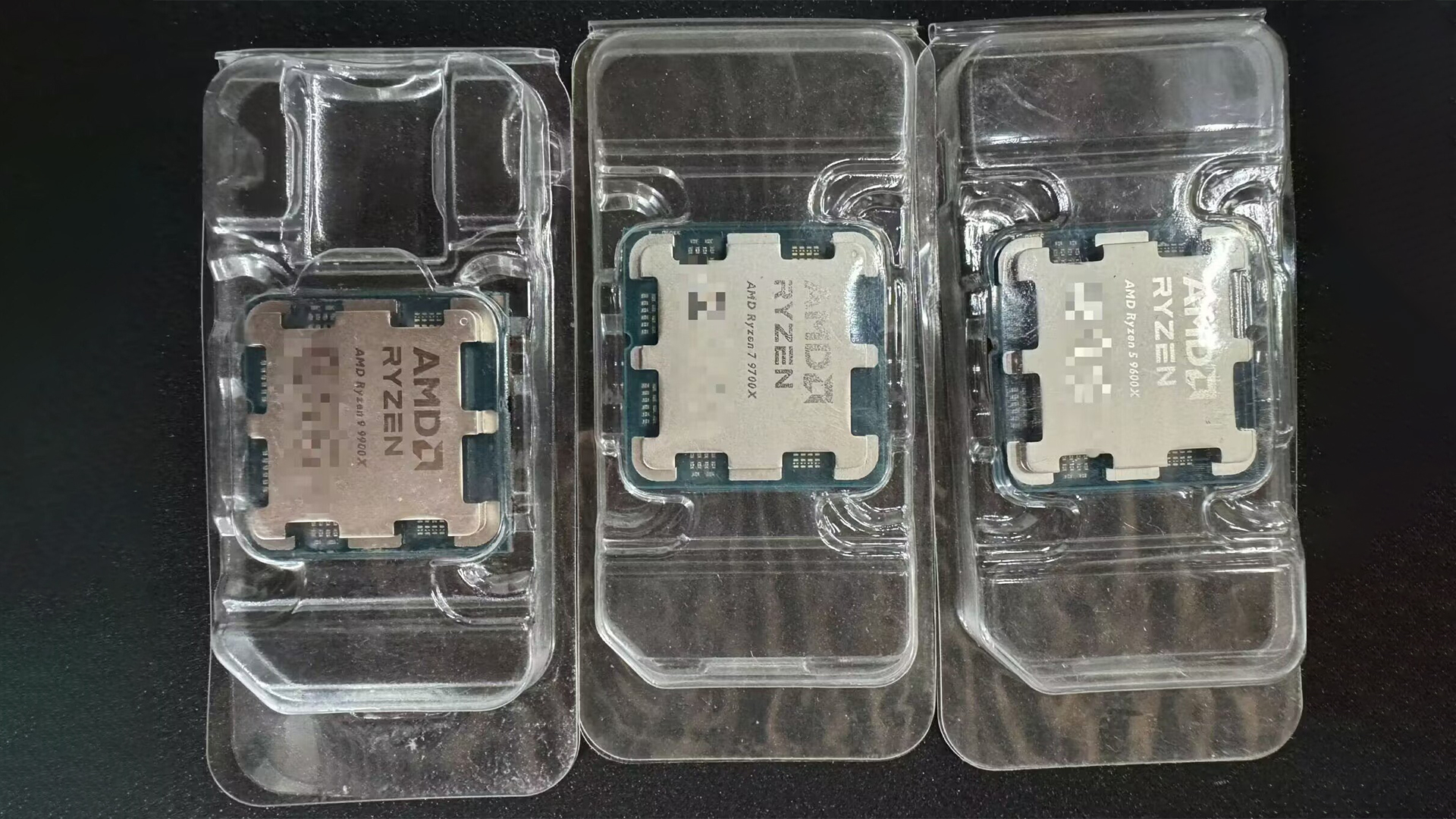
AMD is set to formally introduce its Ryzen 9000-series processors based on the Zen 5 microarchitecture on July 31, and reviews are expected to emerge around that date. Therefore, AMD is probably sending out samples of these CPUs to reviewers as we speak. In fact, photos of the upcoming products have leaked out. Motherboard makers are also prepping for the arrival of AMD's newest desktop processors and are adding stickers that signify their platforms support Ryzen 9000 CPUs.
Reviewer has probably already received the Zen 5. pic.twitter.com/FeZeZ6ZCdeJuly 11, 2024
Twitter/X's HXL shared a photo of three out of four upcoming AMD Ryzen 9000-series processors for desktop PCs, including the Ryzen 5 9600X, Ryzen 7 9700X, and Ryzen 9 9900X, essentially leaving behind the most promising part, the range-topping Ryzen 9 9950X with 16 cores. The above-embedded image has allegedly been taken by a reviewer.
Motherboard makers are also getting ready for the imminent arrival of AMD's Zen 5-based Ryzen 9000-series processors. The majority of leading makers of platforms have either already added support for AMD's next-generation processors to at least some of their mainboards, or are about to do so. Meanwhile, MSI is among the first to add a special sticker 'AMD Ryzen 9000 Desktop Ready' to some of its AM5 motherboards (the MAG X670E Carbon WiFi in this case, pictured below).
未発売の「Ryzen 9000」シリーズ対応済みのMSI製マザーボードが発売 https://t.co/s17nKe94h8July 11, 2024
Ironically, these stickers claiming that AMD 600-series motherboards are compatible with AMD's next-generation Ryzen 9000 processors may be more important for the CPU supplier than the makers of the motherboards themselves. AMD X670/X650-series platforms have been around for about two years now, they are cheaper than they used to be, and they are going to be cheaper than shiny new X870E-based counterparts. For AMD, it is important that its customers understand that even inexpensive 600-series mainboards can support its latest Zen 5-based CPUs.
AMD says that its Zen 5 microarchitecture will enable about 16% instruction per clock performance uplift and a 15% higher speed in multi-threaded workloads. Stay tuned for the Tom's Hardware reviews, where we are going to find out whether this is true.







